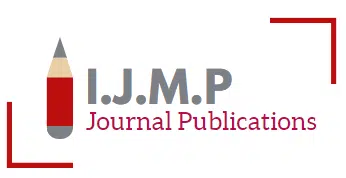Changing careers from teacher to educational manager can be a big step in your professional journey and offer many advantages.
From higher salary expectations to the potential to make an even more significant impact, pursuing a career as an educational manager makes sense for individuals born to be leaders in a teaching setting.
REGENT offers a Postgraduate Diploma in Educational Management and Leadership, which equips teachers with the management skills needed to transition from teacher to leader.
In this article, we look at what educational management is, the benefits of pursuing this direction, and how you can make the shift.
What is educational management?
Educational management is the process of managing an academic institution’s resources, activities, and people.
It involves planning, organising, and controlling all these elements to provide the best experience for learners, parents, and teachers.
This means educational managers need to be able to make informed decisions that impact the institution’s operations and future direction. This includes implementing new policies, technologies, and teaching methods to increase the quality of education and adapt to changes.
Benefits of educational management
You may wonder whether shifting from teacher to leader is the best option for you and what benefits it holds. Here are some of the main advantages.
1. Higher salary
Educational managers, such as principals and administrators, often earn higher salaries than teaching staff because of the added responsibility. This means your income can significantly increase when you take on this role after being used to a teacher’s salary.
2. Opportunity to make a more significant impact
All South Africans have the right to quality education. As an educational leader, you can create quality education within your institution, including better policies and teaching methods. In turn, this can contribute to society’s overall development.
3. Job satisfaction
The ability to lead an educational institution can help you feel more fulfilled in your career. Positive outcomes from your decisions can significantly increase your confidence and make you feel proud that you can make a difference in learners’ lives.
4. Networking opportunities
Educational managers often interact with other leaders in the field, which can lead to career growth and institutional collaborations.
How do you become an educational manager?
The transition from teacher to manager is pretty straightforward. You can pursue a postgraduate diploma if you already have a bachelor’s degree and teaching experience.
REGENT offers a Postgraduate Diploma in Educational Management and Leadership that equips you with the management skills you need to transition into a management position within the educational field.
This one-year course covers the following modules:
- Principles of Educational Management
- Leadership in Education
- Governance in Education
- Using Information Technology
- Financial Decision-Making in Educational Management
- Research in Educational Management
After completing the course, you can apply for administrative roles to gain experience. Then, once you have experience, you can apply for job openings in educational management, such as school principal or education programme director.
What are the most critical educational management skills?
Effective educational managers require specific skills to lead institutions. Here are some of the most critical skills they need.
- Leadership: The ability to motivate, inspire, and guide teachers and learners toward achieving educational goals.
- Communication: Strong verbal and written communication abilities.
- Strategic planning: The skills to develop long-term goals and growth strategies for the institution by looking at educational standards and available resources.
- Organisational management: Know how to manage resources and staff to ensure the institution operates effectively.
- Curriculum development: Knowledge and experience in creating frameworks and curriculum standards to improve learning outcomes and benefit the learners.
- Human resource management: The ability to recruit, train, and evaluate staff performance to create a supportive and productive environment.
- Data analysis and decision-making: Proficiency in gathering and interpreting data related to academic performance and resource allocation to help with more fact-based decision-making.
- Educational policy knowledge: Understand local, regional, and national educational policies and regulations.
- Technology integration: The ability to leverage technology and systems for better learning material delivery and more effective administrative tasks.
FAQ
What is the role of an educational manager?
Educational management involves numerous responsibilities, including planning and overseeing operations, curriculum development, staff development, resource allocation, student support, and more.
What are the top 8 components of educational management?
The top components of educational management work together to ensure the smooth operation of educational institutions. They include the following:
- Leadership and vision
- Planning and strategic management
- Curriculum and instructional management
- Human resource management
- Financial and resource management
- Student services and support
- Community and stakeholder engagement
- Evaluation and quality assurance
What careers are available in educational management?
A Postgraduate Diploma in Educational Management and Leadership opens the door to many job opportunities, including, but not limited to, the following:
- Academic Advisor
- Admissions Counselor
- Athletic Director
- Chief Academic Officer
- Preschool Director
- School Principal or Dean of Students
- Student Coordinator
- Financial Aid Coordinator
Study educational management with REGENT
Going from teacher to manager can be a massive step in growing a more satisfying and meaningful career.
REGENT’s Postgraduate Diploma in Educational Management and Leadership will equip you with the management skills and curriculum knowledge you need to grow a thriving career within educational management.

